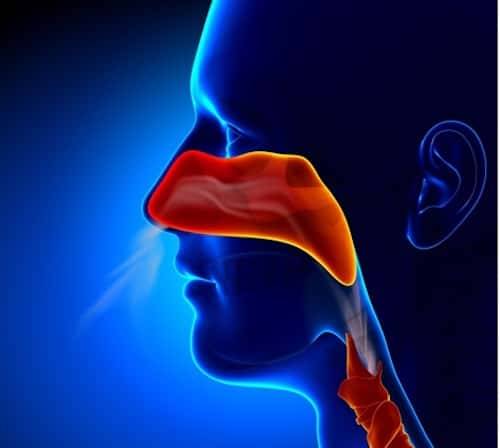
Contents
In this article we will look at:
- What is a sinus infection?
- How does sinus infection occur?
- What are the causes of sinus infection?
- What are the symptoms of sinus infection?
- How is sinus infection diagnosed?
- What are the complications of sinus infection?
- What is the treatment for a sinus infection?
You can click on any of the links above to navigate to the section of your interest.
What is a sinus infection?
Sinusitis is an inflammation or swelling of the tissue lining the sinuses and nasal passages. Healthy sinuses are filled with air. But when they become blocked and filled with fluid, germs can grow and cause an infection.
How does sinus infection occur?
The human skull contains four pairs of hollow air-filled cavities called sinuses, which are connected to the space between the nostrils and the nasal passage (that lies behind the nose).
The sinuses are covered with a mucous layer and cells that contain tiny hairs on their surface called cilia, which provide protection against any external bacteria and germs by trapping and keeping the bacteria and pollutants out of the body.
If the nasal passages for some reason swell up due to allergies, a cold, or something in the environment, it can block the sinus passages.
When the sinus passages are blocked it can get painful.
There are different types of sinus infections depending on the amount of time an infection lasts:
- Acute sinusitis that usually starts with symptoms which are akin to a cold, such as a runny, and stuffy nose and headache. It can last from two to four weeks.
- Subacute sinus inflammation that usually lasts from four to 12 weeks.
- Chronic sinus inflammation that can last for 12 weeks or longer.
- Recurrent sinusitis that occurs several times a year.
What are the causes of sinus infection?
Conditions that can cause sinus blockage include:
- Severe cold
- Allergic rhinitis (swelling of the lining of the nose)
- Nasal polyps ( which are small growths in the lining of the nose)
- A deviated septum, which is a shift in the nasal cavity
- Respiratory tract infections which can be viral, bacterial, or fungal
- Allergies such as hay fever
- Other medical conditions such as HIV/AIDS or cystic fibrosis
What are the symptoms of sinus infection? How is sinus infection diagnosed?
The symptoms of a sinus infection include:
- pain in the face, sinuses, back of the eyes, ear, or forehead
- nasal congestion
- loss of smell
- running nose
- severe sneezing
- fatigue
- fever
- headache
- pain in the ear and inflammation
- breathing through the mouth since nasal passages are blocked
- phlegm
- throat itchiness and irritation
- sore throat
- hoarse voice
- difficulty in sleeping
Diagnosis
If you notice any symptoms of sinusitis, consult a general practitioner. Sinus is most often diagnosed based on the history and a physical examination by the doctor.
These physical findings may include, redness and inflammation of the nasal passages, sensitivity to tapping over the cheeks or forehead region of the sinuses, swelling around the eyes and cheeks.
Nasal secretions may also be examined as the secreted cells may help differentiate between infectious and allergic sinusitis.
What are the complications of sinus infection?
The complications of untreated sinus infection include:
- eye infection
- brain infection
- infection of bone
- mucoceles (a collection of mucus in the sinus that slowly expands over time)
- asthma) which can erode and change the shape of the bone next to it and even herniate through the bone into surrounding structure like the eye and brain
- meningitis
- vision problems
- partial or complete loss of sense of smell
What is the treatment for a sinus infection?
If your infection is caused by bacteria your doctor will prescribe antibiotics. However, if the sinusitis is caused by a virus or any other factors then antibiotics will not help. Depending on the severity of your condition and the cause the doctor may prescribe allergy medicines, decongestant nasal sprays, steroids or even surgery.
Patient Experiences

Questions answered by trusted doctors
And I use tablets.. Will that effect the baby inside me...pls suggest...

But still no results. I have also done operation for DNS (Dislocation of Nasal Septum).
This problem i am facing from almost 8 years. Is there permanent solution for this problem..


Did you know?
Chronic sinusitis in India
An estimated 134 million Indians ( that is more than the population of Japan) suffer from chronic sinusitis, the symptoms of which include but are not limited to debilitating headaches, fever and nasal congestion and obstruction.
Sinusitis more widespread in India
Among Indians chronic sinusitis is more widespread than diabetes, asthma or coronary heart disease.
Mumbaikars suffering the most
The number of patients suffering from this disease is likely to be higher in Mumbai given the pollution levels and unhealthy lifestyle of its citizens.
Related videos
Related articles
Pneumonia is an infection of the lungs caused by bacteria, viruses, or fungi. Know more about Pneumonia, its causes, symptoms, treatment and other useful facts and links and videos on Health-Wiki | Practo
Psoriasis is a persistent inflammatory skin disorder, it is characterized by red skin covered with whitish scales. Know more about Psoriasis, its causes, symptoms, treatment and other useful facts and links and videos on Health-Wiki | Practo
Fungal infections caused by harmful fungi are very common and not very serious if they are diagnosed promptly and treated. Know more about Fungal Infection, its causes, symptoms, treatment and other useful facts, links and videos on Health-Wiki | Practo


